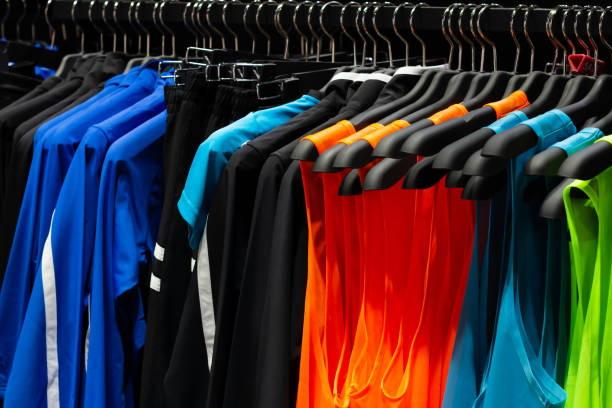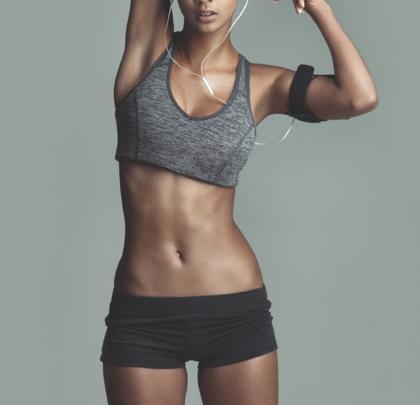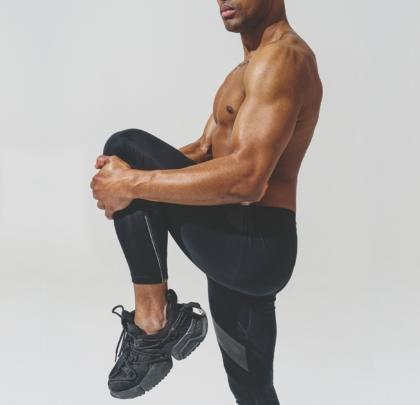Content Menu
>> What Is Custom Branded Sportswear?
>> What Is Private Label Sportswear?
● Custom Branded Sportswear: In-Depth Analysis
>> Product Development Process
>> Advantages
>> Challenges
● Private Label Sportswear: In-Depth Analysis
>> Product Development Process
>> Advantages
>> Challenges
● Technical and Supply Chain Considerations
● Brand Strategy and Market Positioning
>> When to Choose Custom Branded Sportswear
>> When to Choose Private Label Sportswear
● Advanced Insights into Customization and Innovation
>> Fabric and Material Innovation
>> Sustainability Considerations
● Supply Chain Optimization Strategies
● Product Development Expertise
>> Technical Design and Engineering
>> Case 1: Boutique Performance Brand
>> Case 2: Trend-Driven Retailer
● Frequently Asked Questions (FAQ)
>> 1. What is the minimum order quantity (MOQ) for custom branded sportswear vs private label?
>> 2. How long does it take to launch a custom branded sportswear line compared to private label?
>> 3. Can I customize fabrics and fits with private label sportswear?
>> 4. Which model is more cost-effective for a new sportswear brand?
>> 5. How do I ensure quality in both models?
In today’s competitive sportswear market, brands face a critical choice: should they develop custom branded sportswear or utilize private label products? This decision influences brand identity, supply chain dynamics, cost structure, and ultimately, market success. This comprehensive analysis explores the technical, operational, and strategic dimensions of both approaches, providing you with expert insights to determine the best fit for your sportswear brand.

Understanding the Basics
What Is Custom Branded Sportswear?
Custom branded sportswear involves creating apparel from the ground up, tailored to a brand’s unique specifications. This includes everything from fabric selection, fit, and design to branding elements. The process demands close collaboration with manufacturers, designers, and material suppliers to produce exclusive products that reflect the brand’s vision and values.
What Is Private Label Sportswear?
Private label sportswear refers to ready-made garments produced by manufacturers that brands purchase and brand with their own labels. These products come from existing designs and production lines, with limited options for customization beyond branding and minor modifications. This model allows brands to quickly enter the market with established products.
Custom Branded Sportswear: In-Depth Analysis
Product Development Process
– Conceptualization and Design: Brands initiate with detailed design briefs, working alongside technical designers and pattern makers to develop unique apparel.
– Material Sourcing: Selection of high-performance fabrics and trims that meet specific criteria for durability, breathability, moisture-wicking, and comfort.
– Sampling and Prototyping: Multiple rounds of samples are produced to perfect fit, functionality, and aesthetics.
– Production and Quality Control: Full-scale manufacturing follows sample approval, with stringent quality assurance protocols to ensure consistency.
Advantages
– Complete Creative Control: Brands dictate every element, enabling innovation and differentiation.
– Exclusive Products: Custom designs prevent competitors from offering identical apparel.
– Superior Quality Management: Direct oversight ensures adherence to technical standards and brand expectations.
– Stronger Brand Equity: Unique products reinforce brand identity and customer loyalty.
Challenges
– Higher Capital Requirements: Design, sampling, and tooling increase upfront costs.
– Longer Time to Market: Development cycles can extend from 3 to 6 months or more.
– Complex Supply Chain: Coordination among designers, suppliers, and manufacturers requires robust management.
– Higher Minimum Order Quantities: Manufacturers often require large orders to justify production setup.
Private Label Sportswear: In-Depth Analysis
Product Development Process
– Catalog Selection: Brands select from a manufacturer’s existing product range.
– Branding Application: Custom labels, hang tags, and packaging are applied to the products.
– Optional Modifications: Some manufacturers allow limited changes such as color or fabric swaps.
– Order Fulfillment: Bulk orders are placed and shipped with minimal lead time.
Advantages
– Rapid Market Entry: Eliminates lengthy design and development phases.
– Lower Initial Investment: No need for costly sampling or tooling.
– Flexible Order Sizes: Lower MOQs accommodate smaller brands or market tests.
– Wide Product Variety: Access to a broad range of styles and sizes without development overhead.
Challenges
– Limited Differentiation: Products may be available to multiple brands, reducing uniqueness.
– Restricted Customization: Design and material changes are minimal or unavailable.
– Variable Quality Control: Brands depend heavily on manufacturer standards.
– Brand Positioning Limitations: Harder to build a distinct identity with generic products.
Technical and Supply Chain Considerations
Custom Branded Sportswear
– Supply Chain Complexity: Requires integrated management of design, sourcing, sampling, production, and logistics.
– Inventory Risk: Higher due to larger MOQs and unique SKUs.
– Lead Time: Typically 3–6 months, influenced by design iterations and production schedules.
– Quality Assurance: Demands rigorous technical specifications and compliance checks.
Private Label Sportswear
– Simplified Supply Chain: Streamlined procurement from catalog to delivery.
– Inventory Flexibility: Lower MOQs reduce stock risks.
– Lead Time: As short as 2–8 weeks, enabling quick replenishment.
– Supplier Reliance: Quality and delivery depend on manufacturer reliability.
Cost Structure Comparison
| Aspect | Custom Branded Sportswear | Private Label Sportswear |
| Upfront Investment | High (design, sampling, tooling) | Low (catalog selection, labeling) |
| Per-Unit Cost | Higher due to customization | Lower due to bulk production |
| MOQs | Higher (100–500+ units) | Lower (50–100 units) |
| Lead Time | 3–6 months | 2–8 weeks |
| Margin Potential | Higher (unique products) | Moderate (less differentiation) |
| Inventory Risk | Higher | Lower |
Brand Strategy and Market Positioning
When to Choose Custom Branded Sportswear
– Your brand aims for premium positioning or niche markets.
– You prioritize innovation, performance, or unique design features.
– You have the resources to manage complex product development.
– You want to create a strong, exclusive brand identity.
When to Choose Private Label Sportswear
– You are launching a new brand with limited capital.
– Speed to market is critical.
– You want to test product categories before committing to full development.
– You focus on variety, affordability, and quick inventory turnover.

Advanced Insights into Customization and Innovation
Fabric and Material Innovation
Custom branded sportswear allows brands to innovate with advanced textiles such as moisture-wicking, anti-odor, UV-protection, and compression fabrics. These innovations enhance athletic performance and customer satisfaction, setting your brand apart technically and functionally.
Fit and Ergonomics
Developing custom patterns tailored to specific sports or body types improves comfort and performance. Technical expertise in pattern making and fit analysis is crucial to deliver apparel that meets athletes’ needs precisely.
Sustainability Considerations
Brands increasingly demand sustainable materials and ethical manufacturing practices. Custom production enables sourcing organic, recycled, or biodegradable fabrics and working with certified factories, aligning with consumer values and regulatory requirements.
Supply Chain Optimization Strategies
Vendor Collaboration
Building long-term relationships with manufacturers who specialize in sportswear ensures technical expertise and reliability. Collaborative partnerships facilitate innovation, faster problem-solving, and better quality control.
Inventory Management
For custom branded lines, implementing just-in-time inventory and demand forecasting reduces overstock and waste. For private label, leveraging flexible MOQs and rapid reorder cycles enhances responsiveness to market trends.
Logistics and Distribution
Efficient logistics networks and reliable shipping partners are essential to meet delivery timelines. Brands must balance cost with speed, especially when launching seasonal or trend-sensitive collections.
Product Development Expertise
Technical Design and Engineering
Employing skilled technical designers and engineers ensures that apparel meets performance standards, durability, and comfort requirements. This expertise is vital in custom projects to translate brand vision into practical, manufacturable products.
Compliance and Testing
Sportswear must comply with safety, labeling, and environmental regulations. Rigorous testing—such as colorfastness, shrinkage, and fabric strength—guarantees product reliability and consumer trust.
Continuous Improvement
Iterative feedback loops from athletes and customers inform ongoing product refinements, enhancing brand reputation and loyalty over time.
Case Studies
Case 1: Boutique Performance Brand
A startup targeting high-performance runners invested in custom branded sportswear, developing proprietary fabric blends and ergonomic designs. Despite longer lead times and higher costs, the brand achieved premium pricing and loyal customers due to differentiated products and superior quality.
Case 2: Trend-Driven Retailer
A fashion retailer leveraged private label sportswear to quickly respond to athleisure trends. By selecting from a manufacturer’s catalog and applying their branding, they minimized inventory risk and capitalized on fast-changing consumer preferences.
Conclusion
Choosing between custom branded sportswear and private label solutions is a strategic decision that shapes your brand’s identity, operational efficiency, and growth trajectory. Custom branded sportswear offers unmatched differentiation and control but requires significant investment and expertise. Private label provides speed, cost efficiency, and flexibility, ideal for brands prioritizing rapid market entry or product variety.
Elevate your sportswear brand with our expert guidance—whether you seek bespoke innovation or streamlined private label solutions. Contact us today to explore tailored strategies that align with your vision and market goals.

Frequently Asked Questions (FAQ)
1. What is the minimum order quantity (MOQ) for custom branded sportswear vs private label?
Custom branded sportswear typically requires MOQs between 100 and 500+ units per style due to setup costs. Private label options often allow smaller MOQs, starting around 50–100 units, suitable for smaller brands or market testing.
2. How long does it take to launch a custom branded sportswear line compared to private label?
Custom branded sportswear usually takes 3–6 months to develop, including design, sampling, and production. Private label products can be ready in 2–8 weeks since they are pre-made and only require branding.
3. Can I customize fabrics and fits with private label sportswear?
Private label customization is limited, typically to branding and minor modifications. Full customization of fabric, fit, and design is only available with custom branded sportswear.
4. Which model is more cost-effective for a new sportswear brand?
Private label is generally more cost-effective initially due to lower upfront costs and MOQs. However, custom branded sportswear can yield higher margins and stronger brand loyalty over time if you can manage the investment.
5. How do I ensure quality in both models?
For custom branded sportswear, maintain close collaboration with manufacturers, define clear technical specifications, and conduct rigorous quality control. For private label, audit suppliers, request samples, and set explicit quality expectations before ordering.
Hot Tags:
Custom Branded Sportswear, Private Label Sportswear, Sportswear Branding, Brand Customization, Private Label Apparel, Custom Sportswear Manufacturing, Sportswear Marketing, Personalized Athletic Apparel, Brand Differentiation, Sportswear Industry Trends
